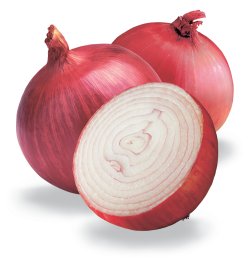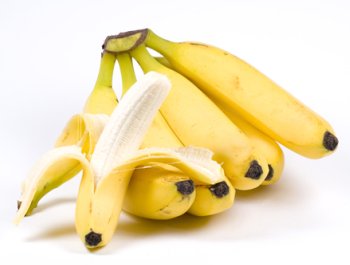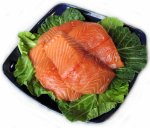Treat Heart Disease with Fruits
and Vegetables
To treat heart disease with fruits and vegetables may seem a bit simplistic but it's the best strategy you could adopt.

We've all heard that we should be eating more fruits and vegetables -
five portions a day according to recommendations given in England, even
nine to eleven according to American researchers (depending on your ideal caloric intake) - but is it
really possible to treat heart disease
with fruits and vegetables? Let's see what the evidence has to say.
Unquestionably, dedicated fruits and vegetables eaters have better arteries. In fact, according to many studies, vegetarians have the lowest rate of heart disease.
But what if you
like to eat some meat? Can you still have any chances of reversing heart disease?
According to recent Harvard studies, women who ate even just one additional large carrot or one-half cup of sweet potatoes (or other foods rich in beta carotene) every day slashed their risk of heart attack by 22% and stroke by 40% to 70%.
Surviving a heart attack

Fruits and vegetables are also a good post-heart attack prescription.
If you survive a heart attack, eating fruits and vegetables can save you from another cardiac event and death even better than just cutting back on high-fat meats and dairy foods, a recent year-long study of 400 heart attack patients in India found.
In this study, doctors put half of the heart attack survivors on a standard low fat diet, the other half on an "experimental" diet heavy on fruits, grains, nuts, legumes, fish and vegetables.
The partecipants had to eat at least 14 oz./400 g. of fruits and vegetables a day - including guava, grapes, papaya, bananas, oranges, limes, apples, spinach, radishes, tomatoes, lotus root, mushrooms, onions, garlic, fenugreek seeds, peas and red beans.
After a year, the fruit and vegetable eaters had 40% fewer cardiac events and 45% fewer death from all causes than the low-fat eaters.
The researchers concluded that if everyone immediately went on a high fruit and vegetables diet after a heart attack, countless lives could be saved. For best results, a heart attack victim should go on the vegetarian-type diet as quickly as possible.
If this is true of people who have already had a heart attack, would you not say that you could treat heart disease with fruit and vegetables from the start?
Advantages of a vegetarian diet
If you are a vegetarian it doesn't necessarily mean that you're eating a healthy diet. I've known vegetarians who eat very few vegetables (a bit of a contradiction in terms) and a lot of fatty cheeses, salty snacks and fast foods.
Needless to say, this is not what we mean by vegetarian diet.
A recent Dutch study on heart patients found that switching to a vegetarian, low-saturated fat, low-cholesterol diet for two years both halted and reversed arterial damage.
The most likely explanation seems to be that the vegetable compounds called carotenes and innumerable other antioxidants in fruits and vegetables help keep arteries unclogged and healthy, say researchers.
Dark green leafy vegetables

If you are to treat heart disease with fruits and vegetables, you must include dark green leafy vegetables in your diet.
They are chock-full of magnesium, a mineral that relaxes the heart muscles and improves heart function.
They include spinach, kale, mustard, broccoli and turnip greens. Aim for at least one serving (about 1/2 cup) a day; two, of course is better!
Consider making spinach salads, tossing a handful of greens into a soup and using these greens instead of lettuce on sandwiches.
And how about juicing them? Juicing is a wonderful way of getting a good amount of vitamins and minerals and all the other nutrients in vegetables in a quick and pleasant drink.
Tomatoes and heart disease

Probably you know that tomatoes are beneficial for preventing prostate cancer thanks to an antioxidant called lycopene, but it turns out that lycopene also works pretty well to prevent and treat heart disease.
When researchers for the Harvard Women's Healthy Study tested lycopene levels in the blood of 485 women who developed heart disease and 485 who didn't, they found that those with the highest levels were about 1/3 less likely to develop heart disease than were those with the lowest levels.
That applied to men, too. In fact, men with the lowest amounts of lycopene in their diets had more than triple the risk of a heart attack or stroke compared with men who ate higher amounts.
Other good sources of lycopene include guavas, pink grapefruit and watermelon and you might want to try them all since each has its own special group of nutrients.
Tomatoes also contain a compound called gamma-amino butyric acid (GABA), which can help lower blood pressure and strengthen the heart muscle.
So to treat heart disease with fruits and vegetables it's not as far fetched as it may seem.
But to enjoy the most benefits, you must try to have at least 9 to 11 servings per day. Anything less and you wouldn't make the most of these wonderful healing foods.
Articles in the Heart Disease Series:
- What Causes Heart Disease
- Reverse Heart Disease with
Healing Foods
- Healing Foods for Heart Disease
- Fish Oil and Heart Disease
- Beans and Heart Disease
- Onions for Your Heart
- Garlic and Heart Disease
- Heart Healthy Nuts
- Olive Oil and Heart Disease
- Treat Heart Disease with Fruits and Vegetables
- Wine for Heart Disease
- Green Tea for Heart Disease
Supplements That Might Help You Fight
Heart Disease
- Home --->
- Reverse Heart Disease with Healing Foods --->
- Healing Foods for Heart Disease --->
- Treat Heart Disease with Fruit and Vegetables
References:
https://www.ncbi.nlm.nih.gov/pmc/articles/PMC5971679/ - A Review
of Plant-based Diets to Prevent and Treat Heart Failure (Accessed
on 16/03/20) by Conor P Kerley
Search for information on this site:
Receive Discover the Power of Healing Foods! Free
Newsletter
Supplements to Help You Fight Heart Disease
Even more effective than fish oil in preventing Heart Disease!
Nutrigold EPA Marine Fish Oil are
sourced from
ecologically clean seas and undergo selective absorption of pollutants like
heavy metals, dioxides and PCBs to ensure purity.
Nutrigold Magnesium Citrizorb®
provides 100mg elemental magnesium per
capsule in a highly bioavailable and bioactive organic citrate form.
Blend of natural botanicals including psyllium husk, fennel, garlic, inulin,
peppermint and papaya, L-Glutamine and Bifidobacteria
Homocysteine is a
common amino acid in your blood. You get it mostly from eating meat.
High levels of it are linked to early development of heart disease.
Nutrigold Superlec Plus is a natural lecithin powder, delivering high
potency phosphatidyl choline (32%) and plant sterols including
beta-sitosterol.









New! Comments
Have your say about what you just read! Leave me a comment in the box below.